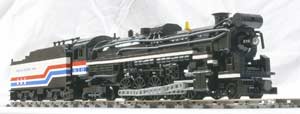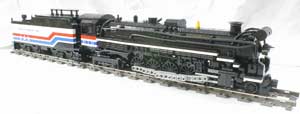
|
Anthony Sava Gallery Unless otherwise noted, all images © copyright Mr. Anthony Sava and may not be used elsewhere without his permission. |
Tony
Sava models locomotives out of LEGO bricks.
Hailing from Texas, he has chosen to model all of the locomotives of the Texas State Railroad. This is his rendition of their 610 steamer, but in its American Freedom Train colors from 1976. |
||
|
Tony's model, finished in January 2011. |
|||
|
A
member of the Texas
LEGO Users Group (TexLUG), Tony plans to run the locomotive
at group events and train shows in Houston, San Antonio and Austin.
|
|||
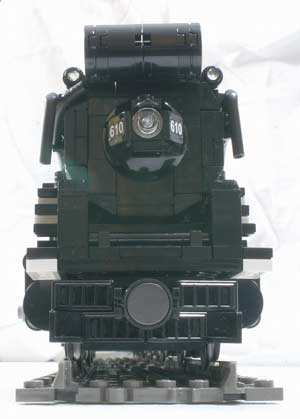 |
Front end detail. In the last decade, LEGO bricks have exploded exponentially in variety and color. So much so that adults are fashioning models of everything from buildings to airplanes to entire cities -- each model rivaling anything that could be made with custom materials. Trains, especially, have become a target for LEGO modelers ever since LEGO introduced a line of trains with 9V track power (now superseded by a line of trains with battery power and remote control). |
||
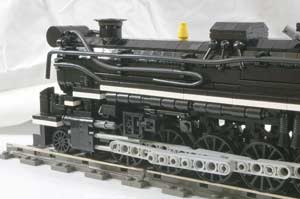 |
Left side, front. Tony normally works freehand, but designed most of this loco in LDraw, a LEGO design program. |
||
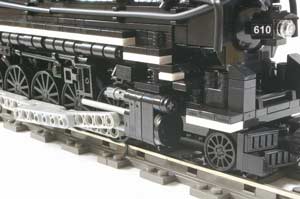 |
Running gear detail. |
||
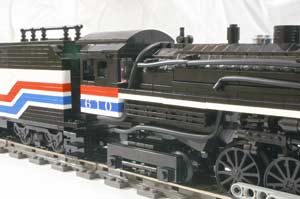 |
Firebox
and cab.
|
||
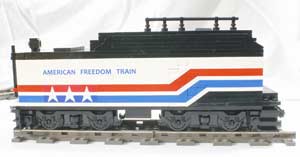 |
The
oil tender.
|
||
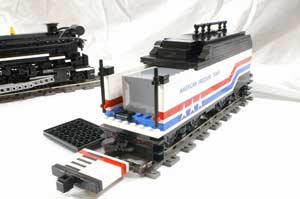 |
The tender trucks are powered by a LEGO battery pack concealed in the tender. A polarity switch keeps the trucks turning in the same direction. Commands are received by an infrared receiver. |
||
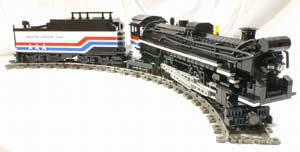 |
The
biggest design issue in making prototypical LEGO locomotives and
cars is the un-prototypically tight radius of the LEGO curved track.
It takes real ingenuity to overcome this, especially with a long
wheelbase locomotive like this former Texas & Pacific 2-10-4.
|
||
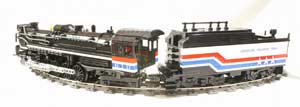 |
Tony's
model readily negotiates LEGO's standard curves.
|
||
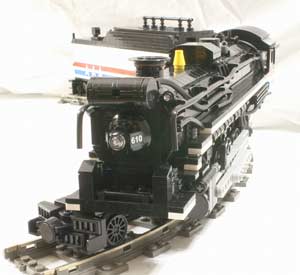 |
Pilot articulation. 'Blind' (flangeless) drivers on some of the axles and a swinging pilot allow the loco to negotiate LEGO's curves. |
||
 |
Engineer's side. |
||
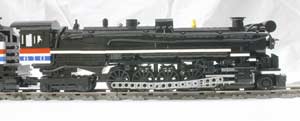 |
Loco
close-up.
|
||
 |
Fireman's side. |
||
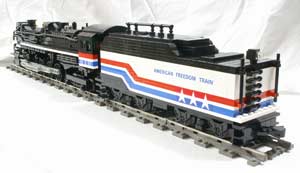 |
Tender
detail.
|
||
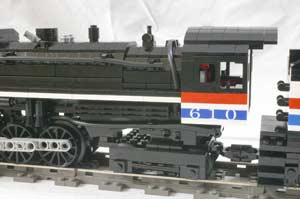 |
Fireman's side cab. |
||
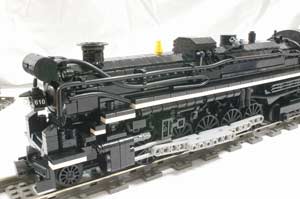 |
A word about SNOT For at least forty years, almost all LEGO models were made to be built vertically, from the ground up, with one brick always on top of the one below. The advent of bricks with studs on more than just their top side opened up new avenues of design. Now bricks could be laid on their sides or even upside down within the same model. SNOT (studs not on top) technique was born. Just in case you were wondering. |
||
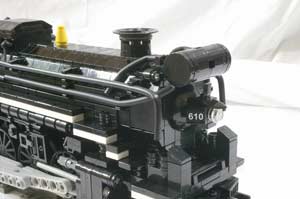 |
Superheater
over the headlight.
|
||
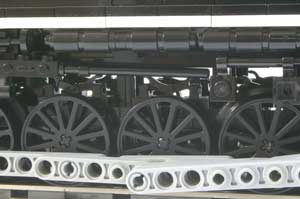 |
"Springs" above the axles. Although LEGO now makes similar wheels, Tony used wheels from Big Ben Bricks. With the exception of the wheels, decals, and some steel rod holding the tubing's shape, the entire loco is LEGO. No LEGO has been painted or cut, except the tubing that was cut to fit. No glue was used. |
||
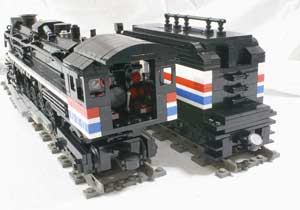 |
T&P
office.
|
||
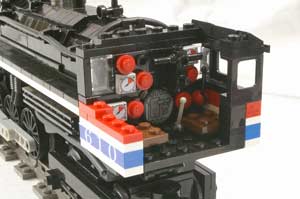 |
Backhead
detail.
|
||
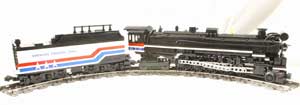 |
Rounding
the bend.
|
||
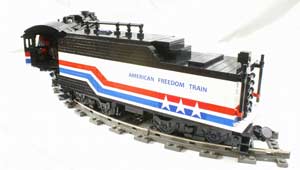 |
Oil
tender decoration.
|
||
|
Sava
Gallery
|
|||

